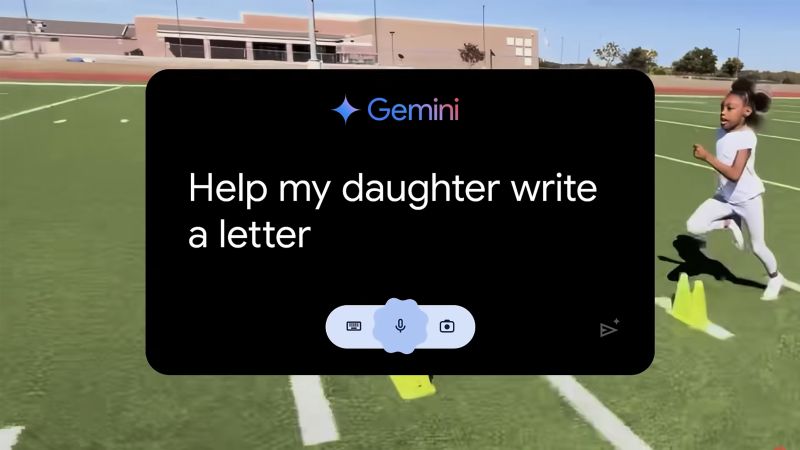Google received criticism for its Olympics ad featuring its Gemini AI chatbot, which showed a father using the technology to help his daughter write a fan letter to US Olympic track star Sydney McLaughlin-Levrone. Many viewers questioned the decision to replace a child’s creativity with words generated by a computer. Initially, Google defended the ad, stating that Gemini could provide a starting point for writing. However, due to the backlash, the company ultimately decided to pull the ad from its Olympics rotation.
The ad’s reception was a rare misstep for Google, which has been promoting Gemini as its answer to competitor OpenAI’s ChatGPT. Google has been integrating AI technology, including Gemini, into various products such as Google Search and Gmail. This backlash highlights concerns about artificial intelligence taking over creative jobs traditionally held by people, such as writers, musicians, and visual artists. This fear of automation replacing human creativity has been a recurring theme in discussions about AI’s impact on various industries.
This incident with Google is not unique, as Apple also faced backlash earlier in the year for an ad that depicted human creativity being replaced by technology. The ad showed symbols of creativity, such as paint cans and musical instruments, being crushed by a giant hydraulic press and replaced by an iPad Pro, set to the song “All I Ever Need Is You” by Sonny & Cher. Apple quickly apologized for the ad, recognizing that it missed the mark in its portrayal of technology’s role in creative pursuits. The incident with both Google and Apple illustrates the delicate balance between technology advancement and the preservation of human creativity.
The debate surrounding AI’s impact on creative fields brings up questions about the future of work and the role of technology in society. While AI can enhance productivity and efficiency in various industries, there are concerns about the potential loss of jobs and the devaluation of human creativity. Companies like Google and Apple must navigate these issues carefully to avoid alienating consumers and facing backlash for their technological advancements. As AI technology continues to evolve and integrate into daily life, it is essential to consider the ethical implications and societal impact of replacing human creativity with automation.
Ultimately, the decision to pull the controversial ad reflects Google’s responsiveness to public feedback and its willingness to reevaluate its marketing strategies. As technology companies continue to innovate and push the boundaries of AI development, it is crucial to consider the implications of these advancements on society and the workforce. Balancing the benefits of AI technology with the preservation of human creativity will be a key challenge for companies as they navigate the evolving landscape of technology and its impact on various industries.


